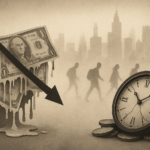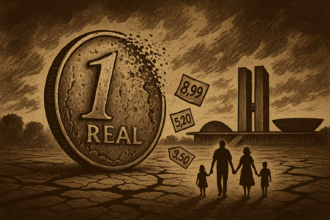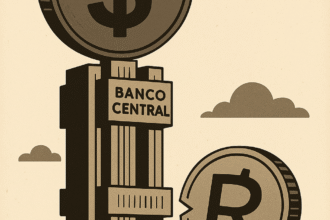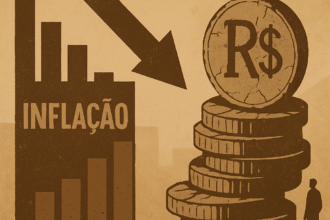In times of crisis, it is common to see the State proposing “aid measures,” “emergency packages,” and “tax incentives” — all presented as temporary favors, when in fact they are just disguises for ongoing looting. The real theft, however, does not occur in the headlines. It occurs silently, in everyday life, on the shelves of the supermarket, in the liter of fuel, in the bread at the bakery.
This robbery is called inflation.
Contrary to what interventionist textbooks say, inflation is not caused by merchant greed or international instability. It arises, in essence, from the artificial expansion of the monetary base — that is, from the issuance of money without backing, promoted by central banks in the service of governments that spend more than they collect. This is the invisible tax: nobody voted for it, nobody debated it, but everybody pays for it.
When the government prints money, it creates an illusion of wealth. In the short term, there appears to be more money in circulation. But since the production of goods does not keep pace with this expansion, the inevitable result is a devaluation of the currency. In simple terms, prices rise not because goods have become better or scarcer, but because money is worth less.
This is exactly where the theft lies. The first to receive this new money — usually the government itself, large companies or banks — are still able to buy it at the old prices. The last in the chain, especially the common worker, feel the impact of the increases without seeing a single extra cent in their pockets. Purchasing power disappears, and the feeling of impoverishment sets in as if it were a natural phenomenon.
But it isn't.
Inflation is a political choice. It is the government's preferred method of maintaining its bloated structures without having to cut spending or face the unpopularity of directly increasing taxes. It is an institutionalized fraud, where rulers live in the present while mortgaging the population's future.
And the worst part is that inflation hits the poorest hardest. They are the ones who cannot protect themselves with financial investments, investments in real assets or strong currencies. They are the ones who live on fixed incomes and need to readjust their budgets month by month. They are the ones who trade meat for eggs, bakery for flour, private school for waiting list.
To say that “inflation is under control” because the official rate fell from 6% to 4% is to mock the intelligence of the population. Real inflation is the one felt at the fair, in the market, in the rental market. And, in this sense, Brazil (and the world) is experiencing a moral inflation: a passive acceptance of ongoing theft as if it were an inevitable part of life in society.
It is not.
Inflation is a deliberate policy.
And like all politics, it can — and should — be fought.





